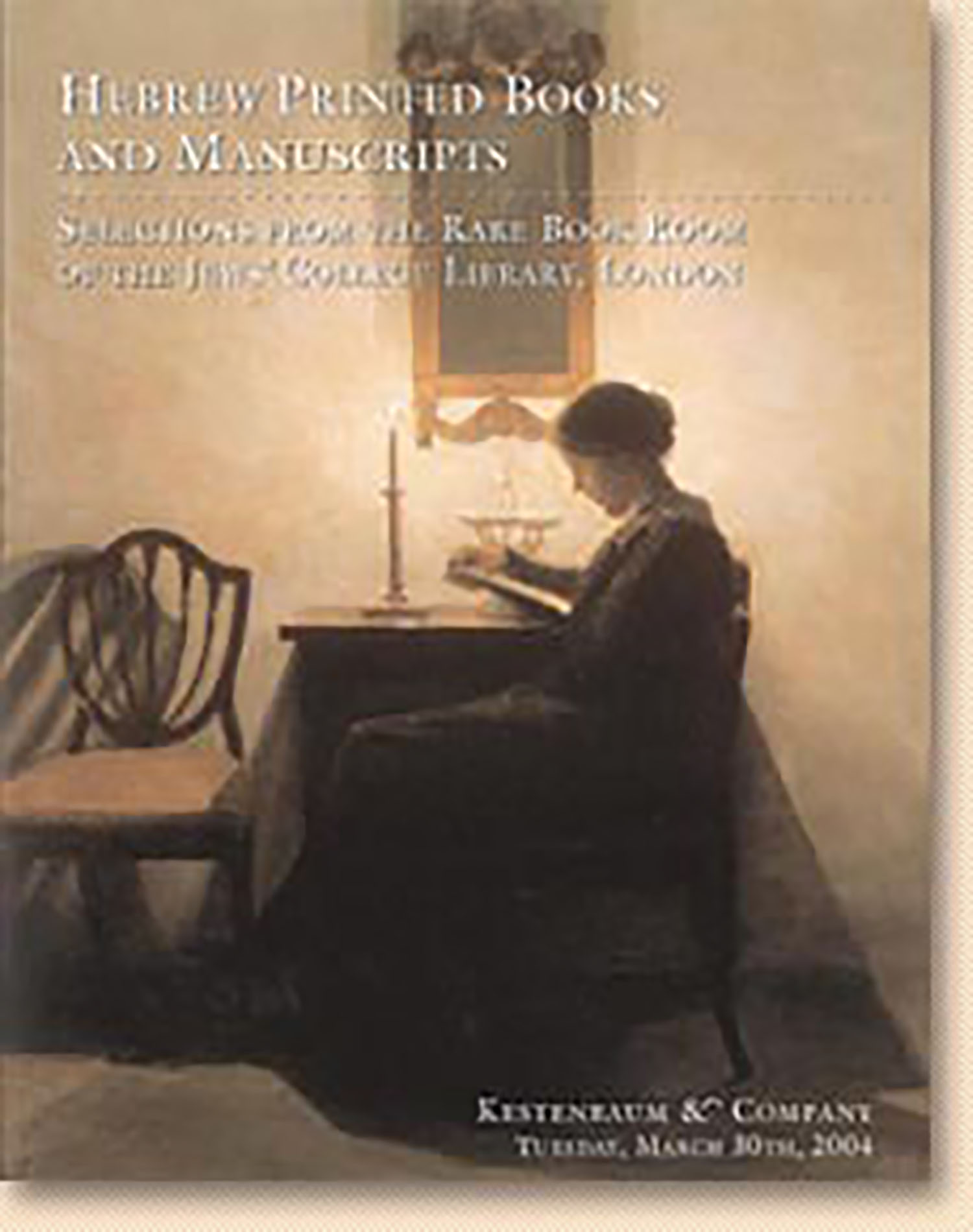Tzedah laDerech [“Provision for the Way”]

AUCTION 23 |
Tuesday, March 30th,
2004 at 1:00
Hebrew Printed Books & Manuscripts from The Rare Book Room of the Jews College Library, London The Third Portion
Lot 122
IBN ZERACH, MENACHEM.
Tzedah laDerech [“Provision for the Way”]
Sabbionetta: Vicenzo Conti (1567)
Est: $600 - $900
PRICE REALIZED $850
Menachem ibn Zerach was born in Estelle in the province of Navarre, Spain to a family that fled France at the time of the expulsion of the Jews of France in 1306. During anti-Jewish riots in Navarre in 1328 he barely escaped being butchered along with the other members of his immediate family. Thereafter he settled in Toledo, where he studied Talmud under the tutelage of Rabbi Judah, son of Rabbi Asher (Ro”SH).
Tzedah laDerech contains a particularly important introduction with valuable historical material on the Jews of France, Spain and Germany. The author presents much information relating to variations of customs among differing communities. Also among the many topics covered: Medicine, astrology, pedagogy and eschatology. The book was written as a compendium for the use of Don Samuel Abrabanel whose ministerial duties at the Court of the King of Spain prevented full-time study
---------------- HOLD FOR REFERENCE. THIS WAS AN ELONGATED VERSION SUBSEQUENTLY EDITED. USE THE BELOW FOR ANOTHER TIME.
Rabbi-physician Menachem ibn Zerach was born in Estella in the northern province of Navarre, Spain to a family that fled France at the time of the expulsion of the Jews of France in 1306. With the death of Charles IV, the French king who ruled over Navarre in 1328, anti-Jewish riots erupted throughout Navarre. The author’s parents and his four younger brothers perished in Estella during the massacre. The author himself barely escaped, settling eventually in Toledo, where he studied under Rabbi Judah, son of Rabbi Asher (RO”SH). Tzeidah la-Derech was composed for the personal use of ibn Zerach’s benefactor, Don Samuel Abravanel of Seville.
Tzedah la-Derech contains a particularly important introduction with much invaluable material on the history of Halacha or Jewish jurisprudence, though that material must be utilized judiciously. For example, Prof. Ephraim Urbach writes that Ibn Zerach overstated the case when he made the claim that Rabbi Asher based his commentary to Talmud, Tosphoth ha-RO”Sh, on the collection of Tosaphoth of R. Samson of Sens, adding thereto teachings received from his own teacher R. Meir of Rothenburg. “Not all the Tosaphoth of RO”SH are an abbreviation of the Tosaphoth of R. Samson, neither do all of them contain additions of MaHaRa”M [of Rothenburg].” E.E. Urbach, The Tosaphists: Their History, Writings and Methods (1995), p.594.
In the Introduction, the author makes the point that the Sages of the Talmud possessed much mathematical and scientific knowledge.
Ibn Zerach’s method is a peculiar interpenetration of Jewish Law and Jewish Thought. In certain instances, he includes philosophic passages from Maimonides’ Guide of the Perplexed witthout attribution (see e.g. f.190). In this respect, Tzeidah la-Derech represents the synthesis unique to Provence. One might even compare his approach to that of his contemporary, R. David ha-Kokhavi (Estella), author Sepher ha-Batim, whose biographical details are yet shrouded in mystery
